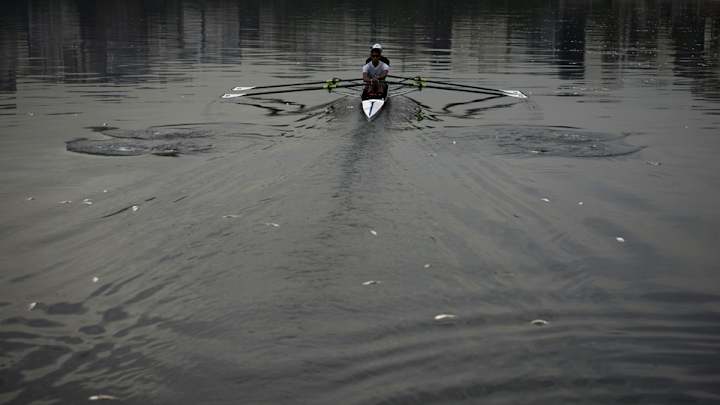Tests find Rio 2016 competition waters filled with sewage

An analysis conducted by the Associated Press showed that the waters that will be used for swimming and boating competitions during next year’s Summer Olympics in Rio de Janeiro are contaminated with human feces, with the potential to cause severe illness.
The AP’s study showed high levels of viruses and bacteria from human sewage in Olympic and Paralympic venues. Some competitors who have trained in Rio have already gotten sick from swimming in the waters.
The study was conducted in four rounds, testing the bacteria in three of the venues slated to host Olympic events, and found high counts of active and infectious human adenoviruses.
If humans come into contact with infected water, it could cause explosive diarrhea and vomiting as well as other long-term problems.
More than 10,000 athletes from over 200 countries are expected to compete in the Olympics, which start Aug. 5, 2016. Around 1,400 athletes are expected to come into contact with polluted water.
• IOC: Boston failed to deliver on promises to U.S. Olympic Committee
Officials in Brazil told the International Olympic Committee when they bid on the games that they would "regenerate Rio's magnificent waterways" and would spend upwards of $4 billion to make sure the sanitation infrastructure was up to par.
"What you have there is basically raw sewage," John Griffith, a marine biologist at the Southern California Coastal Water Research Project, told the AP.
"It's all the water from the toilets and the showers and whatever people put down their sinks, all mixed up, and it's going out into the beach waters. Those kinds of things would be shut down immediately if found here," he said, referring to the U.S.
The Rodrigo de Freitas Lake, which will be used for rowers and canoers, was cleaned up several years ago, but the AP’s study found the waters had 14 million adenoviruses per liter to 1.7 billion per liter at the high end.
• IOC wants another U.S. bid city for 2024 after Boston drops out
"We've had reassurances from the World Health Organization and others that there is no significant risk to athlete health," Dr. Richard Bidgett, the medical director for the IOC told the AP.
According a Washington Post story published earlier this year, about 8,200 liters of sewage per second and 100 tons of garbage per day reaches Guanabara Bay, where three of five Olympic racing lanes are located.
IOC Vice President John Coates has called the preparations for the 2016 Summer Olympics the “worst” he had have ever seen, because of construction delays and the concern over the polluted waters.
When Austria’s sailing team showed up to train earlier this month in Guanabara Bay, several of their team members fell ill with vomiting and diarrhea.
- Scooby Axson
